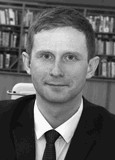STUDY OF MORAL AND PROSOCIAL NORMS IN SPORT
Ключевые слова:
moral norms, prosocial norms, sports behavior, helping behavior, fair play, sports psychology.Аннотация
Objective of the study was to reveal the attitude of athletes to the adoption of prosocial and moral norms in sports in the conditions of competitive activity.
Methods and structure of the study. To study and clarify the problem under study among Russian athletes, focus group interviews were conducted (7 groups of 8 people). The test contingent consisted of 56 qualified athletes and amateur athletes - members of the All-Russian, regional, student sports teams from the cities of Moscow and Ivanovo.
Results and conclusions. In the studied sample, half of the respondents consider honesty and respect for the opponent to be the personal qualities of an ideal athlete, along with purposefulness and resistance to stress. For 80% of athletes, it is important to play fair, to show respect and nobility to opponents, along with the desire to win the competition. Fair play is more associated with following the rules, less with helping behavior in sports. Among the forms of providing assistance and receiving assistance from opponents, the respondents most often named assistance with sports equipment or equipment, assistance with water, accompanying the injured, and moral support. At the same time, athletes do not expect help from rivals.
Библиографические ссылки
Egorov A.G., Zaharov M.A. Fejr Plej v sovremennom sporte [Fair Play in modern sports]. Study guide. Smolensk: SmolGU publ., 2006. 186 p.
Kislyakov P.A., Belov M.S., Shmeleva E.A., Kornev A.V. Psihologicheskaya ocenka socialnogo povedeniya v sporte [Psychological assessment of social behavior in sports]. Teoriya i praktika fizicheskoy kultury. 2020. No. 8. pp. 82-85.
Melnikova O.T. Fokus-gruppy: metody, metodologiya, modelirovanie [Focus groups: methods, methodology, modeling]. Study guide. Moscow: Aspekt Press publ., 2007. 318 p.
Bruner M.W., Boardley I.D., Côté J. Social identity and prosocial and antisocial behavior in youth sport. Psychology of Sport and Exercise. 2014. Vol. 15. No. 1. pp. 56-64.
Kavussanu M., Seal A.R., Phillips D.R. Observed prosocial and antisocial behaviors in male soccer teams: Age differences across adolescence and the role of motivational variables. J. Appl. Sport Psychol. 2006. Vol. 18. No. 4. pp. 326-344.
Ricardo J., Vissoci N., Santos L., Nickenig V., João R., Oliveira L. Systematic review of the literature about moral in the sport context. Saud Pesq. 2021. Vol. 14. No. 1. e7761.

Дополнительные файлы
Опубликован
Как цитировать
Выпуск
Раздел
Лицензия

Это произведение доступно по лицензии Creative Commons «Attribution» («Атрибуция») 4.0 Всемирная.
